Essential Biology with Physiology
5th Edition
ISBN: 9781323260999
Author: Eric J. Simon, Jean L. Dickey, Jelly A. Hogan, Jane B. Reece, Custom Edition for Professor Davison
Publisher: Pearson Custom Publishing
expand_more
expand_more
format_list_bulleted
Concept explainers
Question
Chapter 1, Problem 7SQ
Summary Introduction
Introduction: A hypothesis is a prediction of possible explanations for a phenomena based on observations. However, a theory is a factual explanation that has been proven by testing, verification, and analysis. Hypothesis is a prediction that must be a tested or an educated guess for a given particular statement or methodological experiment.
Expert Solution & Answer
Want to see the full answer?
Check out a sample textbook solution
Students have asked these similar questions
Which of the following is not true of science?a. Science is based on the premise that all events can be traced to natural causes.b. Important science can be based on chance observations.c. A hypothesis is basically a wild guess.d. Scientific theories can potentially be disproved.
which of the following best describes the logic of scientific inquiry?
a. If I generate a testable hypothesis, tests and observations will support it.
b. If my prediction is correct, it will lead to a testable hypothesis
c. If my observations are accurate, they will support my hypothesis.
d. if my prediction is correct, my hypothesis is supported.
Which one of the following statements are not true about a scientific theory?
A.
Cannot be dedcued based on repeated observations without an experiment designed to test the hypothesis.
B.
Could be radically revised based on new scientific evidence.
C.
A basic principle derived from the study of nature that has never been disproven by scientific inquiry.
D.
It is a general and reliable explanation of important natural phenomena.
Chapter 1 Solutions
Essential Biology with Physiology
Ch. 1 - Prob. 1SQCh. 1 - Prob. 2SQCh. 1 - Plants use the process of photosynthesis to...Ch. 1 - For each of the following organisms, match its...Ch. 1 - How does natural selection cause a population to...Ch. 1 - Which of the following statements best describes...Ch. 1 - Prob. 7SQCh. 1 - Prob. 8SQCh. 1 - Match each of the following terms to the phrase...Ch. 1 - The fruits of wild species of tomato are tiny...
Knowledge Booster
Learn more about
Need a deep-dive on the concept behind this application? Look no further. Learn more about this topic, biology and related others by exploring similar questions and additional content below.Similar questions
- In science, a theory is best defined as a(n) Select one: a. educated opinion about the natural world. b. explanation for a large number of findings in the natural world. c. personal understanding of natural laws. d. testable prediction about the natural world. e. speculation and opinion of facts.arrow_forwardFor a scientific theory to be accepted it must be: a.proposed by a scientist of high repute b.able to accommodate the known observations. c.written in clear, concise and elegant prose. d.subjected to rigorous debate for a long timearrow_forwardWhat is the distinguish between a hypothesis and a scientific theory?arrow_forward
- The type of logical thinking that uses related observations to arrive at a general conclusion is called a. deductive reasoning b. the scientific method c. hypothesis-based science d. inductive reasoningarrow_forwardCan a theory be proven wrong?a. No, theories are exactly the same as facts.b. No, because there is no good way to test a theory.c. Yes, a new observation or interpretation of data could disprovea theory.d. Yes, theories are exactly the same as hypotheses.arrow_forwardState whether the following statements are true or false. (a). A hypothesis must be testable and fasifiable. (b). Failure to falsify a hypothesis proves that hypothesis. (C) In the context of science, a law is general and can lead to new testable hypotheses.arrow_forward
- Which of the following statements best distinguisheshypotheses from theories in science?(A) Theories are hypotheses that have been proved.(B) Hypotheses are guesses; theories are correct answers.(C) Hypotheses usually are relatively narrow in scope; theorieshave broad explanatory power.(D) Theories are proved true; hypotheses are often contradictedby experimental results.arrow_forwardA hypothesis in biology is best described as a. a possible explanation of an observation. b. an observation that supports a theory. c. a general principle that explains some aspect of life. d. an unchanging statement that correctly predicts some aspect of lifearrow_forwardHow do scientists derive testable hypotheses? Explain with an example?arrow_forward
- What is the difference between a hypothesis and a theory, and whyare some theories regarded as facts?arrow_forwardWhat is a product of Science that is developed from repeated, tested, and confirmed hypothesis with high degree of certainty. A. Law B. Principle C. Theory D. A and B When can we say that there is/ are paradigm shift/s or dramatic scientific revolutions? Choose the letter of the best answer. A. When supplemental information are created B. When pre-existing and established theories are totally changed C. When new information that would change the facts in the past are created D. B and C E. A and Barrow_forwardWhy is forming a hypothesis an important step in the scientific method? Choose the best answer. Stating a hypothesis before conducting experiments ensures that the method will follow an inductive process of reasoning. By stating a formal hypothesis, a scientist can adequately design the best control conditions for designing experiments intended to falsify the hypothesis. When a formal hypothesis is tested once, it will be accepted as theory no matter what the results of subsequent experiments suggest.arrow_forward
arrow_back_ios
SEE MORE QUESTIONS
arrow_forward_ios
Recommended textbooks for you
 Concepts of BiologyBiologyISBN:9781938168116Author:Samantha Fowler, Rebecca Roush, James WisePublisher:OpenStax College
Concepts of BiologyBiologyISBN:9781938168116Author:Samantha Fowler, Rebecca Roush, James WisePublisher:OpenStax College

Concepts of Biology
Biology
ISBN:9781938168116
Author:Samantha Fowler, Rebecca Roush, James Wise
Publisher:OpenStax College